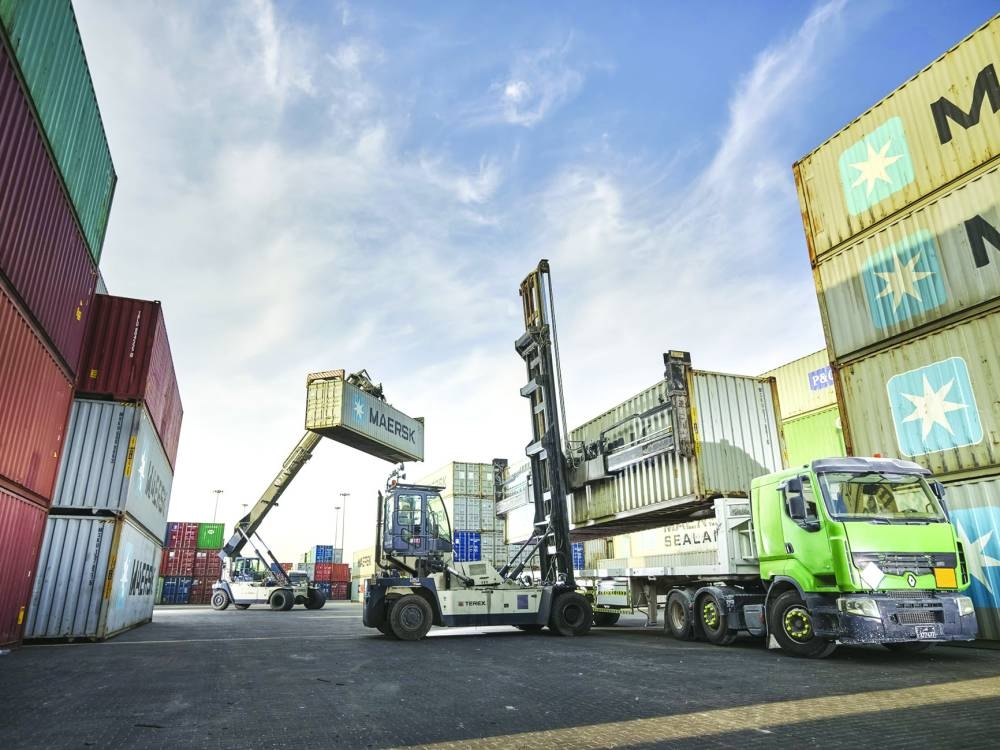As the backbone of supply chain, road transport plays a pivotal role in connecting its various links, from raw material origins to final customer delivery.
With the Ministry of Transport finalising the Qatar Freight Master Plan (QFMP), attention has shifted to establishing an integrated, effective, and multi-modal road freight system that supports Qatar’s continued economic development needs; providing strategic road transport solutions that are efficient and competitive; integrating seamlessly with air and sea freight; ultimately reinforcing sustainable economic diversification and strengthening competitive advantages in regional and global arenas.
Gulf Warehousing Company (GWC) emerges as a leading example of innovation and adaptability amid the industry’s changing dynamics, poised to navigate forthcoming challenges and prepared to establish pioneering standards of excellence in logistics.
With over two decades of experience, GWC is strategically positioned to take on the logistical needs and challenges of the transport sector with efficiency and adaptability.
Thanks to its transport fleet (the largest in Qatar), cutting-edge tracking systems, and tailored solutions, clients across diverse industries are provided with competitive advantage and added value that is integrated into their supply chain.
GWC Group CEO Ranjeev Menon stated: "Amidst the finalisation of the Qatar Freight Master Plan, GWC will continue to support the country's efforts in actualising Qatar’s Third National Development Strategy (2024-2030), which consolidates Qatar international position as one of the most competitive and sustainable countries to provide innovative transport solutions that support the national economy”.
GWC’s success in road transport is significantly influenced by its cutting-edge transport management system, which seamlessly integrates technology to plan, execute, and optimise the movement of goods. The system provides a comprehensive view of operations, from analytics to real-time tracking.
Safety is a paramount practice at GWC. The company fosters a “safety-first” culture by adhering to recognised standards and guidelines, continuous staff training, journey management based on risk assessment and proactive risk mitigation. Integral to our commitment to safety is ensuring optimal vehicle conditions and driver training to handle emergencies.
Additionally, GWC employs “meticulous” compliance and safety guidelines throughout the transportation processes based on the various cargo categories it handles, including dangerous goods.
GWC sets benchmarks for operational efficiency, monitoring fleet utilisation, as well as repair and fuel costs.
Accident rate reduction and driver performance assessments are pivotal in our continuous improvement strategy.
GWC offers tailored solutions that serve different sectors through its diverse transport fleet. Most prominent among them is the oil and gas sector, which it supports by organising the safe transport of chemicals and petrochemicals and providing specialised carriers for hazardous materials.
The company recently launched a modern station for cleaning ISO Tank containers which are used for transporting chemicals, a first of kind facility in the State of Qatar. Through it, the company cleans approximately 100 ISO Tank containers per month, with a capacity to clean 1,000 ISO Tank containers per month.
The company also provides container handling and repair services. More than 10,000 containers pass through the GWC’s container yard located in Al Wukair Logistics Park every month, out of which approximately 6,000 containers are repaired and reused.
Other specialised vehicles GWC offers are those used to transporting fine art and collectibles, flatbed carriers with capacities reaching more than 110 tonnes, vertical cranes of 140 tonnes, forklifts and other specialised vehicles and machinery.
In the endeavour to empower and foster the growth of GWC’s workforce, Menon elaborated: “We consider our workforce as ambassadors of the company, which is why we strongly emphasise recruitment processes. This process involves thorough screening, skills verification, and additional tests to ensure personnel are equipped to navigate the dynamic challenges of the transportation sector.
“Our learning and development programme covers induction modules, practical training, and internal and external safety training, as well as self-development courses. Our investment in continuous learning enhances efficiency, safety, and professionalism amongst our personnel”.
Business
GWC 'strategically positioned' to meet logistical needs, challenges of Qatar's transport sector

GWC emerges as a leading example of innovation and adaptability amid the industry’s changing dynamics.

GWC Group CEO Ranjeev Menon.
